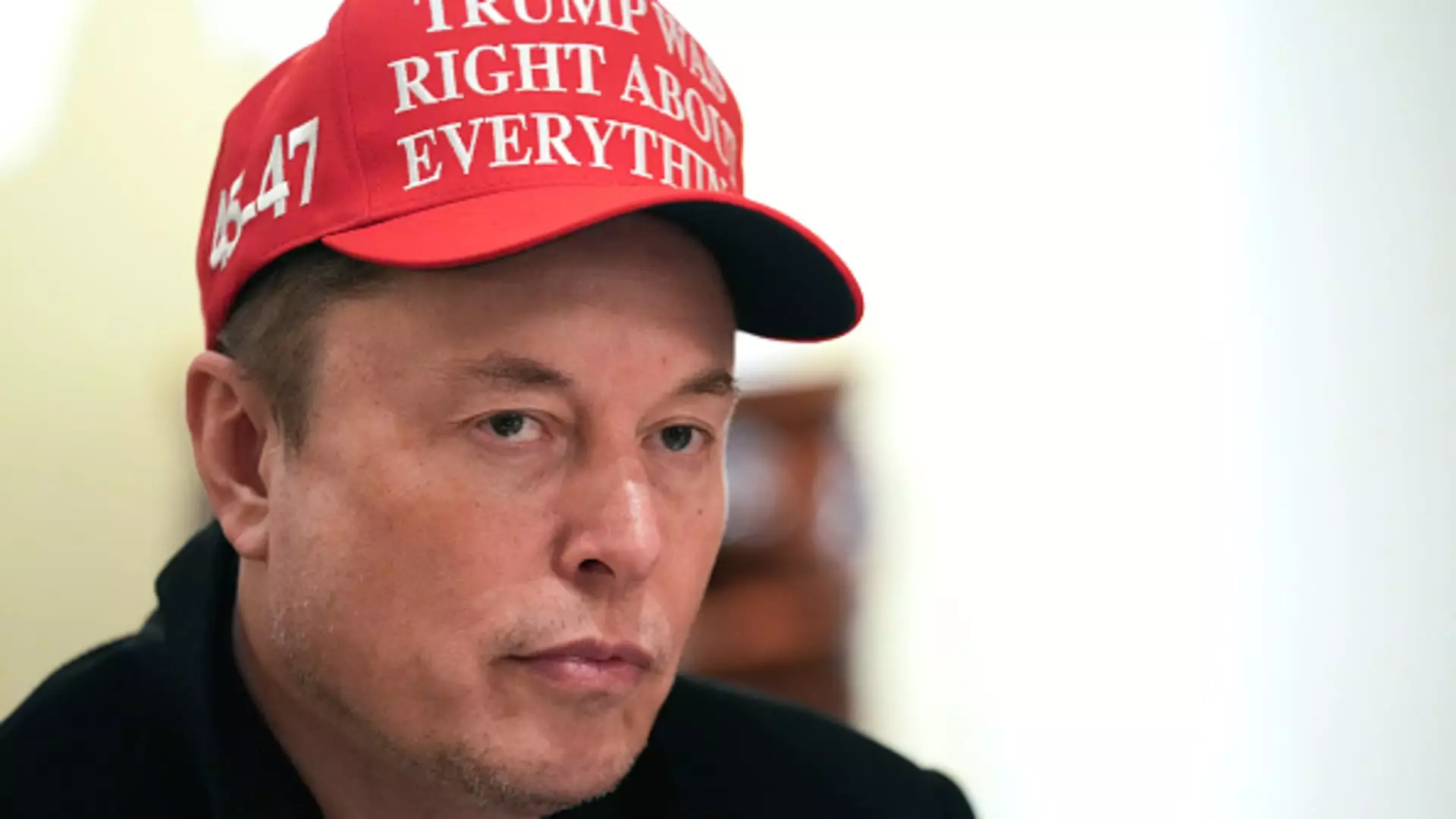Tesla Inc., a stalwart in electric vehicle innovation, has recently witnessed its stock price plummet nearly 6% ahead of its first-quarter earnings report. This decline positions the stock at $227.50, just shy of its annual nadir set earlier in April. As it stands, Tesla shares have suffered a staggering 44% drop this year, following its worst quarterly performance in over a year. This marks the twelfth occasion in 2023 where the stock experienced a single-day decline of at least 5%. Such volatility elicits concerns not merely about numbers but about the brand’s identity and consumer perception in an increasingly competitive marketplace.
The evolving narrative surrounding Tesla isn’t solely about stock prices; it delves deeper into the growing perception of “brand erosion.” Investors are increasingly anxious about how recent political affiliations and uncertainties, particularly regarding CEO Elon Musk’s role in the broader socio-political milieu, are impacting consumer sentiment and, inevitably, sales. The recent quarter showed that Tesla delivered 336,681 vehicles—an alarming 13% decrease from the same period last year. Such numbers may signal more than just market fluctuations; they hint at an underlying identity crisis for the brand, particularly in how it resonates with consumers.
Political Distractions and Brand Impact
Musk himself has become an enigma in the landscape of automotive innovation. His involvement in political maneuvers, especially his noticeable association with the Trump administration, has generated waves of backlash both in North America and Europe. This association has added layers of complexity to Tesla’s brand identity, transforming it into a “political symbol” for many, as aptly noted by analysts. Employees and consumers alike are increasingly questioning the direction in which Musk’s involvement could steer the company.
Inquiries about how Tesla’s board plans to cope with the repercussions of Musk’s political activities are not mere speculation but are rooted in genuine concern from the investment community. As Tesla wrestles with these brand image challenges, it simultaneously grapples with a declining willingness among potential consumers to purchase its vehicles. Recent surveys reveal a drop from 46% of respondents considering a Tesla in January 2022 to just 27% by March of this year. This reflects a seismic shift in consumer sentiment that the company cannot afford to overlook.
Market Pressures Beyond the Horizon
Compounding the challenges faced by Tesla are geopolitical dynamics and economic pressures, particularly with regards to China’s robust electric vehicle market. Analysts from Oppenheimer have pointed out the brand’s potential vulnerabilities within China, emphasizing “nationalistic consumer trends” that may drive domestic buyers toward local manufacturers instead of Tesla. This increasing competition, alongside the looming specter of Trump’s tariffs, could exert downward pressure on Tesla’s pricing strategies.
Tesla’s reliance on international market dynamics showcases the delicate balance between global demands and localized sentiments. Should Tesla’s reputation continue to wane, the necessity for exporting vehicles manufactured in China may confront the company with unforeseen pressures on pricing. This intertwining of brand perception and market performance demonstrates a fundamental truth: success in the automotive sector is no longer dictated purely by innovation, but significantly impacted by how the brand navigates the intricate web of consumer opinion and political landscapes.
Investor Expectations and the Road Ahead
Investors have begun to express cautious optimism, with some calling for a “turnaround vision” from Musk during the upcoming earnings call. Long-time bulls like Wedbush Securities’ Dan Ives have not abandoned hope but rather stress the urgency for decisive leadership to reclaim Tesla’s once-unassailable market position. It is perhaps ironic that this resilient brand, once a beacon of innovation and disruption, is now entwined in issues of messaging, public perception, and market viability.
With analysts from Barclays issuing a sell rating and slashing their price targets amidst concerns about “confusing setups” for the upcoming quarter, the road ahead appears fraught with challenges. Nevertheless, should Musk refocus on Tesla’s core strengths, showcasing its technological advancements such as the anticipated “FSD event,” there lies a glimmer of potential recovery. The question remains, however: can Tesla pivot effectively in response to the swirling tensions surrounding it, or will it continue to be overshadowed by external distractions and internal brand fatigue? The stakes could not be higher, both for Musk and the company he leads.


Leave a Reply